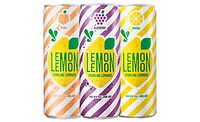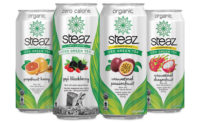Although it has been available in the U.S. beverage market for about 15 years, kombucha has gained broad consumer appeal within the past several years, according to New York-based Beverage Marketing Corporation’s (BMC) September 2016 report titled “U.S. Ready-To-Drink Tea through 2020.” As health and wellness has progressed from a niche interest to mass consumer appeal, this beverage segment has reaped the benefits.
“It has to be among the least likely categories to foster brands that show signs of igniting among a general audience, but over the past several years there have been increasingly unmistakable signs that kombucha has evolved from being a specialty item among an extreme sub-segment of foodies on the West Coast to a segment of broad interest even transcending the natural-foods channel,” the report states.
The kombucha market grew by an estimated 41 percent to $534 million wholesale during 2016, explains Roger Dilworth, senior editor at BMC. “[We] don’t see it slowing down too much in the future,” he says. “Forty-plus percent growth will be hard to maintain, of course, as the category’s base grows, but [we] don’t foresee issues surrounding alcohol content or sugar content derailing the segment.”
In fact, it seems as though kombucha has garnered the attention of some large beverage manufacturers. At the end of 2016, Purchase, N.Y.-based PepsiCo Inc. announced that it entered a definitive agreement to acquire then Oxnard, Calif.-based KeVita Inc., a producer of fermented probiotic and kombucha beverages.
“I’m pleased to welcome KeVita into the PepsiCo family. Under the leadership of CEO Bill Moses, KeVita has become an innovative, high-growth brand that is transforming the functional beverage space,” said Chris Lansing, general manager and vice president of PepsiCo Premium Nutrition, in a statement at the time of the announcement. “This announcement is further evidence of PepsiCo’s focus on delivering Performance with Purpose by continuing to evolve our health-and-wellness offerings to meet consumers’ changing needs.”
New product introductions also continue to proliferate in the emerging market. BluePrint, a brand of New Hyde Park, N.Y.-based Hain Celestial Group, announced the launch of a new line of certified USDA organic kombucha drinks in July 2016. The brand now offers the product in four flavors that combine fruit and vegetable juices with fermented tea.
Although the market is growing at a quick pace and garnering attention from a broader range of consumers, a few factors could be hindering consumer interest and trial in the segment.
“The market probably still faces lack of awareness, though that has changed somewhat,” BMC's Dilworth says. “High price points reduce consumption occasions, but can’t be helped without hurting margins, [and] taste could be an issue with some consumers.”
However, when it comes to taste, the challenge might be overcome with the proliferation of flavors, he adds.
“[T]he more the merrier; as more marketers come out with more flavors, the more likely a potential consumer will be able to find something he or she might want to try when it’s on sale, and hopefully will like enough to become a regular consumer,” Dilworth explains. “With more flavors, the taste issue … is mitigated somewhat.”
Kombucha brewers have been active in launching a variety of flavors to entice consumers, even launching seasonal varieties. For example, Torrance, Calif.-based Health-Ade Kombucha introduced Holiday Cheers, a seasonal kombucha, this past holiday season. The probiotic tea featured ginger, cacao and allspice combined with raw, organic kombucha.
Other brands also are launching products with familiar flavors. San Francisco-based Top Shelf Beverages launched a Ginger Mint Lemonade-flavored, raw kombucha in July 2016. The product brings together the familiar flavors with a twist, the company says.
Consumer interest in health-and-wellness trends as well as functional beverages is driving the growth of this market as well as the proliferation of brands and products, Dilworth says. “Categories in the past, such as vitamin waters, have promised health, but don’t really deliver; consumers seem to perceive something about kombuchas that makes them feel better,” he explains. “It has an association with probiotics even though it might not exactly fit into that strict definition, but people seem to feel a detox or ‘stomach-friendly’ effect.”
Going further, the market research firm’s report highlights that the beverages also contain various
B vitamins, as well as lactic and acetic acids, which are said to support digestive health, BMC’s report states. Detoxification and immunity enhancement also are other among the health benefits associated with the product, it adds.
“A whole host of disorders are said to be helped by kombucha consumption, with the caveat that some of these claims have not been subject to rigorous scientific scrutiny,” the report states. “According to anecdotal evidence, kombucha detoxifies heavy metals, combats acne, keeps Candida (yeast) in check and treats irritable bowel syndrome, among other benefits.” BI







